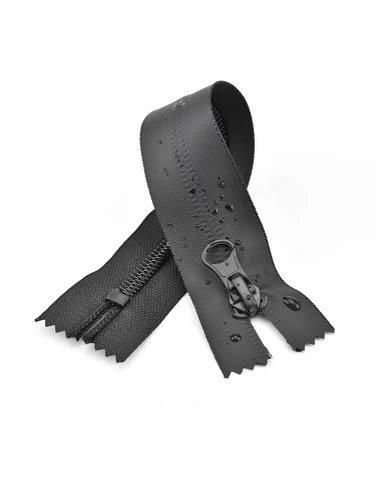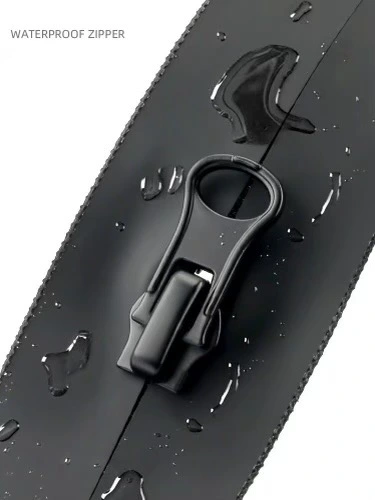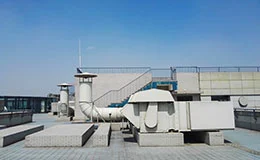Understanding Waterproof Nylon Zippers: What You Need to Know
Zippers in gear are frequently underestimated despite their essential role in maintaining the effectiveness and longevity of clothing items such as jackets and backpacks. One specific variety that garners attention is the nylon zipper utilized in outdoor equipment. However, the actual performance and durability of "waterproof" zippers under real-world conditions are often of great interest to outdoor enthusiasts.
Waterproof vs. Water-Resistant: Key Differences
Many zippers marketed as "waterproof" are actually just water-resistant. There is a distinction in their water-repelling capabilities. Water-resistant zippers, commonly found in apparel and luggage, are designed to resist water up to a point but may allow some water to pass through with extended or intense exposure. They typically have a special coating on the surface of the zipper tape, such as Thermoplastic polyurethane (TPU) , polyurethane (PU) or polyvinyl chloride (PVC).
The Science Behind Water-Resistant Zippers
Water-resistant zippers typically have a coating of Durable Water Repellent (DWR) on the tape and sometimes on the zipper itself. This coating causes water droplets to bead up and slide off rather than soak in, making them effective in light rain or brief encounters with moisture. However, during activities involving significant movement and pressure, the protective ability of water-resistant zippers may decrease. Tests indicate that in harsh weather conditions, these zippers might not effectively keep out moisture unless there are additional protective measures, such as storm flaps [Source: YKK Americas, GearLab].



What to Consider When Choosing Waterproof Nylon Zippers
When choosing gear that features nylon zippers, it's important to consider the weather conditions you'll encounter. If you often find yourself in changing environments, it's best to opt for high-quality waterproof zippers or water-resistant zippers that come with extra protection, such as storm flaps. Our company provides a variety of zipper options, ranging from water-resistant styles to fully waterproof designs tailored for harsh conditions, catering to different environmental demands and individual needs.
Conclusion
The term "waterproof" is often used broadly. However, distinguishing between waterproof and water-resistant zippers can help you make well-informed decisions regarding your equipment needs in outdoor settings. For most activities, water-resistant zippers with appropriate protective features, like storm flaps, usually offer sufficient protection against water intrusion.
foshanguanxinzipper@gmail.com